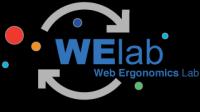Conference,
ASSETS 2008 Introduction
(2008)General Chair-Simon Harper and Program Chair-Armando Barreto.
DOI: http://portal.acm.org/citation.cfm?id=1414471&jmp=cit&coll=ACM&dl=ACM&CFID=9080062&CFTOKEN=88365495#CIT
Abstract
Welcome to ASSETS 2008, the Tenth International ACM SIGACCESS Conference on Computers and Accessibility! This year's meeting continues the tradition started in Marina del Rey, in 1994, which has become an annual event since 2004. In 2008 ASSETS continues to be the premier international gathering of researchers, practitioners, educators, and students involved in the application of computing and information technologies to provide assistive systems to people with special needs, and the development of computing technologies and their use by people with disabilities. The conference's activities provide a rich source of information and motivation for anyone interested in the promotion of accessibility, at diverse levels.
The opening keynote will be provided by Professor Ronald M. Baecker, Bell Chair in Human-Computer Interaction, University of Toronto, who will talk about the design of technology to aid cognition. The podium presentations include 29 full-length technical papers selected from 79 submissions, which have been organized in 10 thematic sessions. Attendees will have the opportunity to examine late-breaking results, as well as work-in-progress and practical implementations of research projects through 34 posters and demonstrations, selected from 49 submissions in a session chaired by Chieko Asakawa and Hironobu Takagi. These proceedings contain a 2-page abstract from each one of these posters and demonstrations. Both technical papers and poster/demonstration papers were subjected to a competitive peer-review process, ensuring that the papers included in these proceedings represent the state-of-the-art in the discipline. Nine rising new stars of the accessibility field have been selected to bid for the top prize of the Microsoft Student Research Competition, chaired by Matt Huenerfauth and Pawan Lingras. These students have submitted 2-page abstracts of their work (included in these proceedings), and will present their projects in posters during designated sessions at the conference. Additionally, the Doctoral Consortium, chaired by John Black and Giorgio Brajnik, will allow 11 doctoral students to share and discuss their research with a panel of established accessibility researchers.
The themes covered by the papers chosen for presentation at ASSETS this year show some interesting trends. As our understanding and awareness of cognitive and memory functions, and their disruptions, increase, accessibility researchers are addressing new challenges in these areas, which is reflected in the program and the keynote presentation. It is no surprise that the work in the area of Web accessibility continues to be an important focus of the conference, as the Web has become such an incredible outlet for different types of participation of individuals in society. However, while many forms of social participation may be just a web page away, the efforts to make it accessible to all are still ongoing, and some important contributions are described in these proceedings. This year's program includes a session that explores the use of the Web, and the pervasiveness of electronic personal communication media, to prospectively allow anyone to contribute to the development of shared accessibility resources. Information is power, and these new approaches aim at the future use of electronic communication networks to allow anyone interested to "donate" information that will empower individuals who face accessibility barriers.
This is all taking place at a time in which the technological capabilities that our research community can bring to bear to address accessibility challenges (processing speed, storage capacity, power efficiency, size reduction, component affordability) continue to improve, promising to propel even more imaginative solutions to accessibility problems in the near future. It is an exciting time for accessibility research, and we hope that this excitement will permeate the halls at ASSETS 2008 and that you become part of it.
